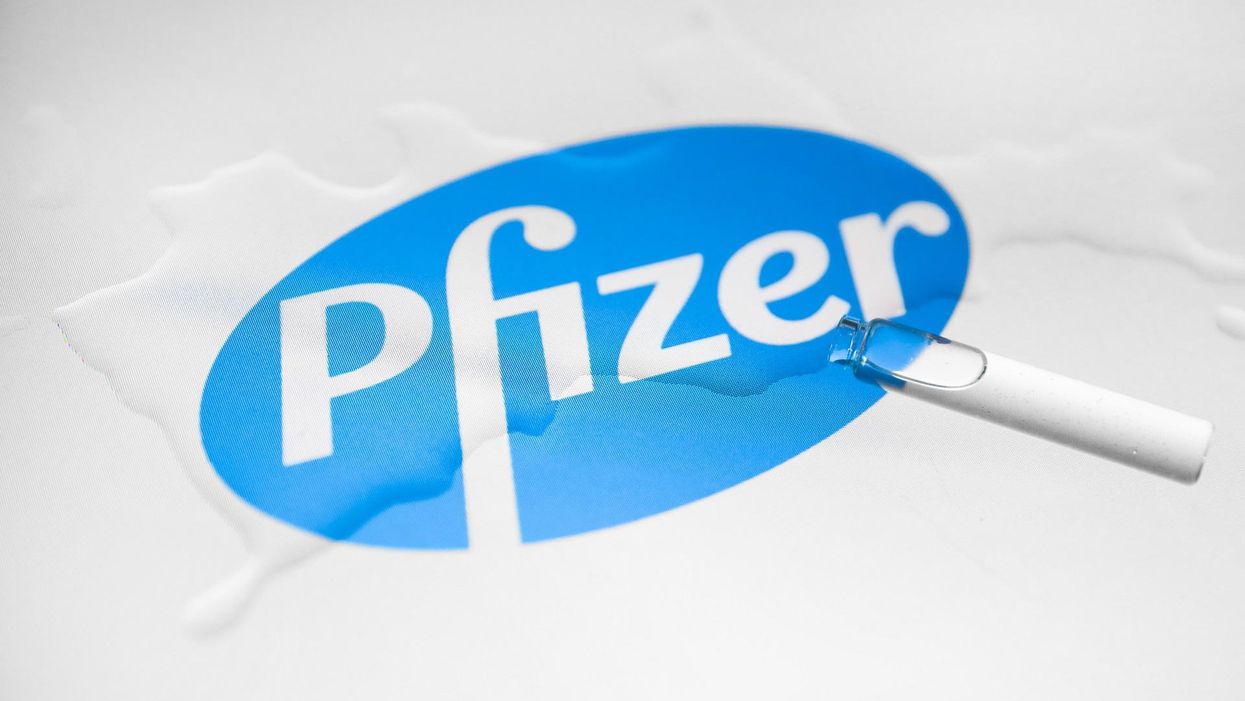
Beata Zawrzel/NurPhoto via Getty Images

The stock prices of several coronavirus vaccine developers took sharp downturns on Wednesday, after the Biden administration announced it supports stripping away vaccine patent protections so the formulas can be shared with the world to produce generics.
U.S. Trade Representative Katherine Tai announced in the afternoon that the administration supports waiving intellectual property protections for COVID-19 vaccines.
Tai said in a statement:
"This is a global health crisis, and the extraordinary circumstances of the COVID-19 pandemic call for extraordinary measures. The Administration believes strongly in intellectual property protections, but in service of ending this pandemic, supports the waiver of those protections for COVID-19 vaccines. We will actively participate in text-based negotiations at the World Trade Organization (WTO) needed to make that happen. Those negotiations will take time given the consensus-based nature of the institution and the complexity of the issues involved.
CNBC reported that following the news, shares of vaccine producers Pfizer, Biontech, Novavax, and Moderna all plunged "to session lows."
The outlet reported that following the sharp drops, "Pfizer ended its trading day flat, while Moderna lost 6.1%; Johnson & Johnson shed a modest 0.4%."
The Pharmaceutical Research and Manufacturers of America, a trade group that represents several of the pharmaceutical companies impacted, slammed the Biden administration's move.
"In the midst of a deadly pandemic, the Biden Administration has taken an unprecedented step that will undermine our global response to the pandemic and compromise safety," the group's president and CEO, Stephen J. Ubi, told CNBC. "This decision will sow confusion between public and private partners, further weaken already strained supply chains and foster the proliferation of counterfeit vaccines."
Reactions to the news were split on social media, with some people slamming the move and saying that pharmaceutical firms should be able to profit off the development of the vaccines. One person wrote, "This current administration has no understanding of the great lengths that went into development of these life saving vaccines. These companies should be able to profit from there (sic) hard work."
Another expressed concern over the precedent that the Biden administration's policy sets, tweeting, "Pretty extraordinary step. Once this box is opened I think it will be hard to limit it only to COVID. What about cancer drugs? What if we get a cure for Alzheimer's? Are those really less important than COVID-19? This has major ramifications for IP going forward in the U.S."
But others argued that sharing the vaccine technology was more important than profits. Akshaya Kumar, the crisis advocacy for Human Rights Watch, wrote, "Thanks for taking this bold position @AmbassadorTai! By doing so, the US may help turn the tide on this pandemic and save countless lives globally."
Some pointed out the pharmaceutical companies had received a hefty amount of taxpayer funds for the speedy development of the shots under former President Donald Trump's "Operation Warp Speed."
One person replied, "Taxpayers funded this, not the companies. They took almost no risk, just reaped reward. All this is doing is asking them -- who, again, did not pay for this and risked functionally nothing -- to accept slightly less of a reward."
Time magazine reported in December that Operation Warp Speed "allocated more than $12 billion to vaccine makers" for the development (including research and clinical studies) and manufacturing of the first 300 million doses.
Six deals were made between the U.S. government and individual firms or partnerships, including Johnson & Johnson, Moderna, Novavax, and undertakings by AstraZeneca-Oxford, Sanofi-GlaxoSmithKline, and Pfizer-BioNTech.
Fox Business reported in March that the deals are still rolling in for approved U.S. vaccine producers not only from the federal government, but from countries abroad.
At that point, Pfizer and BioNTech expected to split $15 billion in vaccine revenues by the end of 2021, while Moderna expected $18.4 billion in advanced sales and Johnson & Johnson was on track to pull in roughly $10 billion by the end of the year.
Those potential revenues could look entirely different if the formulas are spread to other firms globally.